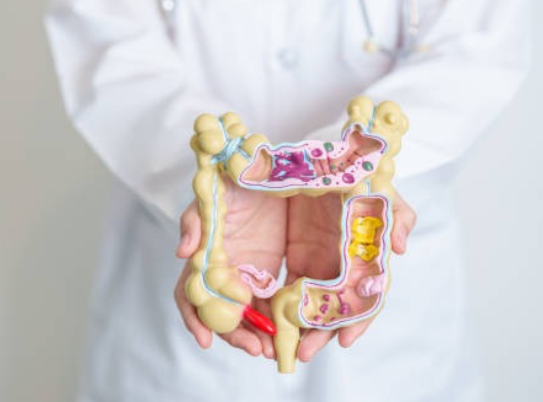【2025年最新版】歯科衛生士の求人・転職情報|あなたにぴったりの職場を見つけよう!
Alleviating Colitis Flare-Ups: Top Gentle Diet Foods for Relief
Colitis, an inflammatory condition of the colon, can lead to distressing symptoms like abdominal pain, diarrhea, fatigue, and bloating. While medication plays an important role in managing flare-ups, diet also plays a critical part. A gentle, anti-inflammatory diet can help calm the digestive system, reduce discomfort, and promote healing. During flare-ups, it is especially important to choose foods that are easy to digest, nourish the body, and reduce gut irritation.
Colitis, an inflammatory condition of the colon, can lead to distressing symptoms like abdominal pain, diarrhea, fatigue, and bloating. While medication plays an important role in managing flare-ups, diet also plays a critical part. A gentle, anti-inflammatory diet can help calm the digestive system, reduce discomfort, and promote healing. During flare-ups, it is especially important to choose foods that are easy to digest, nourish the body, and reduce gut irritation.

1. What is Colitis?
Colitis refers to inflammation in the colon, which can be triggered by conditions such as ulcerative colitis, Crohn’s disease, or infections. Common symptoms include:
- Abdominal cramps
- Diarrhea (sometimes with blood)
- Fatigue
- Bloating
- Weight loss
A well-balanced diet is essential for managing colitis flare-ups. While the right foods can soothe inflammation, certain foods can make symptoms worse. During flare-ups, the digestive system is especially sensitive, and it's crucial to opt for foods that are easy on the stomach and help promote gut health.
2. Foods That Soothe Colitis Flare-Ups
A. Low-Fiber Foods
Fiber plays a vital role in digestion, but during a colitis flare-up, high-fiber foods can irritate the inflamed colon. Low-fiber foods, on the other hand, are gentler and help reduce discomfort.
- White rice: A simple, low-fiber option that’s easy to digest.
- Plain pasta: Gentle on the digestive system and soothing during flare-ups.
- Refined white bread: Contains less fiber than whole grain bread and is easier on the digestive system.
- Cooked potatoes: Soft, skinless, well-cooked potatoes are low in fiber and easy on the stomach.
- Crackers: Simple crackers or white bread are easy-to-digest comfort foods.
B. Lean Proteins
Protein is essential for tissue repair, but during flare-ups, it’s important to select proteins that are easy on the gut.
- Skinless chicken: Grilled, boiled, or baked chicken without the skin is easy to digest.
- Turkey: A lean protein that is gentle on the stomach.
- Eggs: Soft-boiled or scrambled eggs are mild, easily digestible proteins.
- Tofu: For vegetarians, tofu is a soft, digestible protein that’s gentle on the gut.
C. Cooked Vegetables
Raw vegetables can be harsh on the digestive system during flare-ups. Cooked vegetables are generally easier to tolerate.
- Carrots: Soft, well-cooked carrots are full of vitamins and easy to digest.
- Zucchini: Mild and easy to cook until soft.
- Pumpkin: Gentle on the stomach and can help with digestion.
- Sweet potatoes: Rich in vitamins and minerals, sweet potatoes are easy to digest when well-cooked and peeled.
D. Healthy Fats
Healthy fats can help reduce inflammation and provide nourishment during flare-ups.
- Olive oil: A good source of anti-inflammatory compounds.
- Avocado: Rich in healthy fats, it’s easy on the stomach.
- Coconut oil: Contains medium-chain triglycerides (MCTs), which are easier to digest than other fats.
E. Bone Broth
Bone broth is rich in collagen, gelatin, and amino acids like glutamine, which help heal the gut lining and reduce inflammation. It’s a soothing and nourishing option for individuals with colitis flare-ups.
3. Hydrating Fluids for Colitis Relief
Fluids are critical during colitis flare-ups to prevent dehydration, especially if diarrhea is present.
- Water: The best way to stay hydrated without irritating the gut.
- Herbal teas: Peppermint, ginger, or chamomile teas can help reduce nausea and bloating.
- Clear broths: Vegetable or chicken broths are hydrating and gentle on the stomach.
- Electrolyte drinks: Replenish lost minerals with drinks that do not contain added sugars or artificial sweeteners.
4. Foods to Avoid During a Colitis Flare-Up
Certain foods can irritate the digestive system and worsen symptoms. It’s best to avoid the following during a flare-up:
A. High-Fiber Foods
- Raw fruits and vegetables: These can cause bloating, gas, and discomfort.
- Whole grains: Whole wheat bread, brown rice, and oats are higher in fiber and may irritate the colon.
- Legumes and beans: High in fiber, they can cause gas and discomfort.
B. Dairy Products
Many individuals with colitis are lactose intolerant, which can worsen symptoms.
- Milk: Both whole and skim milk can be hard to digest.
- Cheese: Many find dairy products aggravate colitis symptoms.
- Ice cream: High in fat and dairy, it can irritate the digestive tract.
C. Fatty and Fried Foods
- Fried foods: Foods like French fries or fried chicken can be hard on the digestive system.
- Processed meats: Sausages, bacon, and deli meats can contain unhealthy fats that irritate the gut.
D. Spicy Foods
- Spices like chili, hot peppers, and curry can irritate the digestive system. Avoid spicy foods and condiments like hot sauce.
E. Caffeinated Beverages and Alcohol
- Caffeine: Coffee, caffeinated tea, and sodas can worsen diarrhea and cramping.
- Alcohol: Alcohol can trigger inflammation, irritate the gut, and dehydrate the body.
5. Additional Tips for Managing Colitis Flare-Ups
- Eat small, frequent meals: Smaller meals are often easier on the digestive system than large ones.
- Chew food thoroughly: Proper chewing helps break down food and reduces the strain on your gut.
- Consider an elimination diet: Try removing common irritants like gluten or dairy to see if they are triggering symptoms.
Conclusion
Managing colitis flare-ups with a gentle, anti-inflammatory diet is one of the most effective ways to reduce inflammation, alleviate symptoms, and promote healing of the gut. Focus on low-fiber foods, lean proteins, cooked vegetables, healthy fats, and hydrating fluids to calm your digestive system. At the same time, avoid foods that irritate the gut, like raw vegetables, dairy, fatty foods, and alcohol.
Always consult with a healthcare provider or nutritionist to tailor your diet to your specific needs and ensure that you are getting the proper nutrients during flare-ups. By making mindful food choices, you can improve your comfort and better manage colitis symptoms.











